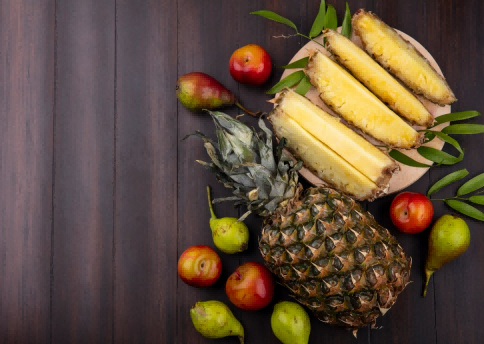 Export News
Export News
 10-10-2023
10-10-2023
Honduras, a Central American nation known for its rich biodiversity and fertile lands, has been making significant strides in the world of agricultural exports. In this comprehensive exploration, we will delve into the landscape of Honduras' agricultural exports, understanding what the country exports, the challenges it faces, and the trends shaping its trade with the global market.
>>>FREE Get New Potential Customers<<<

The Current Landscape: Agricultural Exports in Honduras
Honduras, often referred to as the "Banana Republic," has a thriving agricultural sector that serves as a cornerstone of its economy. The nation's diverse topography, fertile soil, and favorable climate conditions make it an agricultural powerhouse in Central America. Let's take a closer look at the various agricultural exports that Honduras specializes in:
1. Coffee: A Global Favorite
Coffee production is an integral part of Honduras' agricultural exports, and the country consistently ranks among the top coffee-producing nations worldwide. Its elevation, ranging from 800 to 1,600 meters above sea level, provides an ideal environment for the cultivation of high-quality Arabica coffee beans. The coffee industry not only contributes significantly to the nation's export earnings but also provides livelihoods for many Hondurans.
2. Bananas and Pineapples: Tropical Delights
Honduras is a major player in the global banana and pineapple markets. Its tropical climate allows for year-round production of these fruits. The banana industry, in particular, is one of the largest employers in the country, offering jobs to thousands of Hondurans. These exports are primarily destined for North America and Europe, where consumers relish the sweet and juicy fruits.
3. Shrimp and Seafood: Abundant Harvests
Honduras' extensive coastline along the Caribbean Sea provides abundant opportunities for seafood exports. The country has invested in shrimp farming, leading to significant growth in this sector. Additionally, Honduran waters are rich in various seafood species, including fish and lobster, making seafood exports a lucrative venture.
4. Palm Oil: Sustainable Growth
Palm oil production has been on the rise in Honduras. The country now stands as one of the leading palm oil producers in Central America. Sustainable practices are increasingly being adopted in this sector to ensure that growth is environmentally responsible and socially beneficial.
5. Melons and Vegetables: Fresh and Flavorful
Honduras' export portfolio extends to fresh produce, including melons, vegetables, and other fruits. These exports cater to international markets that demand high-quality, fresh, and flavorful produce throughout the year. The country's commitment to quality and safety standards ensures that its produce is well-received globally.
These agricultural exports collectively contribute to the socioeconomic development of Honduras. The income generated from these exports supports rural communities, improves infrastructure, and fosters economic growth. However, the sector also faces several challenges that need to be addressed for sustained success.
>>>Click to Check More Import And Export Information from Tendata<<<
Trade Trends: Looking Ahead
Honduras' agricultural exports are poised for continued growth. The country's strategic location, diverse range of products, and commitment to sustainability create a favorable environment for expansion. Key trends to watch in the coming years include:
1. Increased Exports of Processed Foods
As consumer preferences evolve, there is a growing demand for processed and convenience foods. Honduras can capitalize on this trend by exporting more value-added products.
2. Sustainable and Organic Agriculture
The global trend toward sustainability and organic products presents an opportunity for Honduras to market its produce as eco-friendly and ethically sourced.
3. Technology Adoption
Investments in agricultural technology and innovation can improve crop yields, reduce post-harvest losses, and enhance overall productivity.
4. Strengthening Trade Agreements
Honduras can benefit from strengthening its trade agreements with key trading partners, ensuring preferential access to international markets.
In conclusion, Honduras' agricultural exports play a pivotal role in its economic growth. With strategic investments, sustainable practices, and market diversification, the country is well-positioned to capitalize on global trends and continue nurturing its agricultural exports to the benefit of its economy and people.
Customer development is always a primary focus for us in international trade. Having customers leads to orders. But if we're looking to start a business or expand our development channels, what are the available avenues for customer development? And what are the characteristics of these customer development channels?
The traditional undifferentiated marketing approach mostly involves extensive investment to achieve broad coverage. In the Marketing 1.0 era (Industrial Age) and the Marketing 2.0 era (Internet Age), the marketing demand of companies is to precisely locate their target customers within a massive audience (or potential audience). They also need to understand the procurement-supply relationships, price ranges, purchasing frequency, and style preferences of these target customers. This is akin to finding a needle in a haystack.

Tendata can assist foreign trade enterprises in better customer development. Once a company has precisely targeted a market (or region) using Tendata's data, the next step is to further pinpoint high-quality customers within that market, creating customer "profiles" and filtering out target customers that match one's own supply capabilities. (>>>Click to Develop New Customers)
Category
Leave Message for Demo Request or Questions


 T-info
T-info T-discovery
T-discovery

 My
Tendata
My
Tendata Market Analysis
Market Analysis Customer
Development
Customer
Development Competitor
Monitoring
Competitor
Monitoring Customer Relationship
Customer Relationship





































































































































